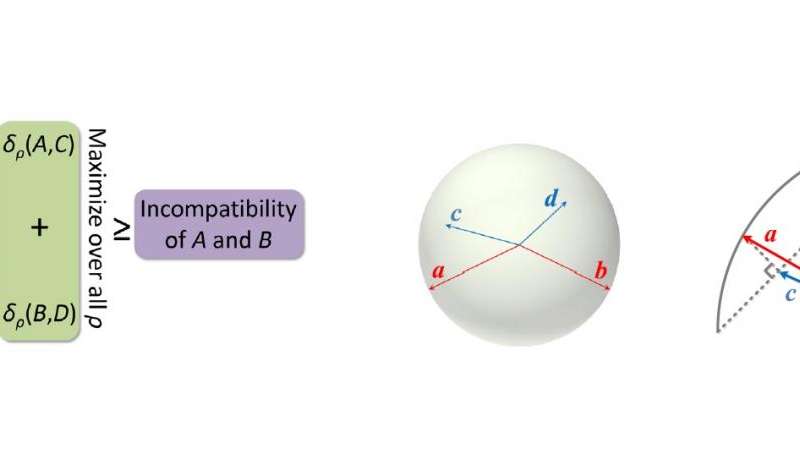Best of Last Week – Verifying Heisenberg's principle, revealing Pluto's secrets and brain damage due to stress

(ScienceX)—It was another good week for physics as a team of researchers affiliated with several institutions in China conducted an experimental test that verified Heisenberg's measurement uncertainty principle—using nuclear-spin qubits they verified trade-offs in which measurement inaccuracies were quantified geometrically. Also, another team working with the Hubble Telescope found that the universe may be expanding faster than expected—a surprising 5 to 9 percent faster—and suggested their findings might help explain dark matter, dark energy and dark radiation. And another team with members from Brazil, the U.K. and Italy, reported that they had discovered an infinite number of quantum speed limits which dictate how fast quantum systems can transition between states.
In news from space, a team of researchers working at the VLA research center in New Mexico, created a new radio map of Jupiter that reveals what's beneath the planet's colorful clouds, offering the best perspective yet of its atmosphere. And another team working on NASA's New Horizon's project revealed secrets from Pluto's 'Twilight Zone' by examining imagery taken by the probe last summer during a time when the probe was at a high-phase angle to the planet. Also, an international team of researchers offered some ideas to help shed light on the history of the geodynamo as they looked to answer the question of just what sustains Earth's magnetic field anyway?
In other news, a group of researchers at Purdue University found that honeybees pick up 'astonishing' numbers of pesticides via non-crop plants—even in areas dominated by corn, soybean or other major crops. The chemicals, the researchers found, came from both agricultural and homeowner areas suggesting that bees may face more threats than has been known. Also, a team of researchers working in Germany found a way to trick the body's viral response to combat cancer, offering perhaps a new weapon in the fight against the disease. And a joint effort between researchers at MIT and the University of Washington has led to findings that suggest deep, old water may explain why the Antarctic Ocean hasn't warmed—scientists have been working diligently to understand why global warming hasn't led to warmer waters surrounding Antarctica; now, they may have their answer.
And finally, if you, like most people, experience a lot of stress in your life, a team at The Rockefeller University had both good and bad news—they found signs of stress damage in the brain, plus hope for prevention. They found evidence that ongoing stress can actually cause structural damage to the amygdala, which is bad, but they also noted that a new experimental drug might be able to prevent it from happening.
© 2016 ScienceX